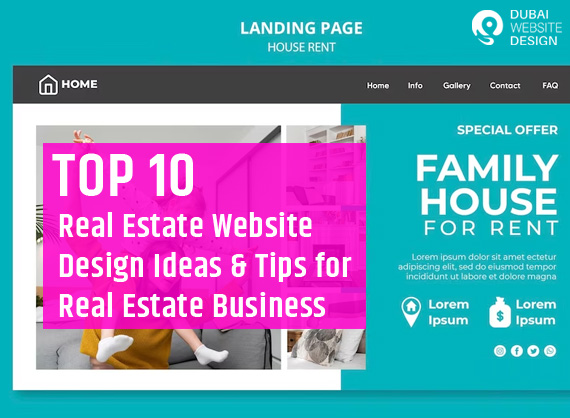Looking for the best real estate website design? Award-winning real estate website design · Show your market expertise with a customized website · Bring in more leads and visitors with high-converting tools.
1. Responsive Design for Mobile Accessibility
In today's digital age, a responsive Real Estate Website Design is crucial. It ensures that your website looks and functions flawlessly across all devices, including smartphones, tablets, and desktops. A mobile-friendly design enhances user experience (UX) and accommodates the growing number of mobile users searching for properties on the go.
2. High-Quality Visual Content
Real estate is visual by nature, so leverage high-quality images and videos to showcase your properties effectively. Professional photographs, virtual tours, and video walkthroughs can significantly enhance the appeal of listings and engage potential buyers or renters. Visual content should be optimized for fast loading times to provide a seamless browsing experience.
3. User-Friendly Navigation and Search Functionality
Simplify the property search process with intuitive navigation and robust search functionality. Implement filters for price range, property type, location, and amenities to help visitors find relevant listings quickly. Clear menus, breadcrumbs, and a user-friendly interface contribute to a positive user experience, keeping visitors engaged and encouraging them to explore more listings.
4. Interactive Property Maps
Integrate interactive maps that allow users to explore properties based on location. Interactive maps not only provide a visual representation of property locations but also offer valuable insights into nearby amenities, schools, transportation, and points of interest. This feature enhances the user experience and helps potential buyers or renters make informed decisions.
5. Lead Capture Forms and Calls to Action (CTAs)
Incorporate strategically placed lead capture forms and compelling calls to action (CTAs) throughout your Real Estate Web Design. Encourage visitors to subscribe to email newsletters, schedule property viewings, request more information, or contact a real estate agent. Well-designed CTAs and forms can convert website traffic into qualified leads, driving your business growth.
6. IDX Integration for Real-Time Property Listings
Integrate Internet Data Exchange (IDX) to display real-time property listings directly from your local Multiple Listing Service (MLS). IDX integration ensures that your website always displays accurate and up-to-date property information, enhancing credibility and trust among visitors. It also expands your inventory of listings without manual updates, saving time and effort.
7. Neighborhood and Community Pages
Create dedicated pages that highlight different neighborhoods and communities within your target market. Include detailed information about local amenities, schools, parks, restaurants, and market trends. These neighborhood pages not only cater to SEO opportunities but also provide valuable insights that resonate with potential buyers or renters looking to relocate.
8. Blogging and Content Marketing
Establish your authority in the real estate industry by regularly publishing informative blog posts and articles. Share market insights, buying and selling tips, home improvement ideas, and local real estate news. Content marketing not only attracts organic traffic but also positions your website as a valuable resource for both current and prospective clients.
9. Social Proof and Testimonials
Build credibility and trust by showcasing client testimonials, case studies, and success stories on your Real Estate Website Design. Social proof reassures visitors that you have a proven track record of delivering exceptional service and results. Display client reviews prominently to highlight your expertise and reliability in the competitive real estate market.
10. SEO Optimization for Increased Visibility
Optimize your real estate website for search engines (SEO) to improve organic visibility and attract more qualified traffic. Use relevant keywords, meta tags, alt texts for images, and local SEO strategies to rank higher in search engine results. A well-optimized website drives targeted traffic, increases lead generation, and boosts your overall online presence.
Conclusion
Effective Real Estate Website Design is essential for modern real estate businesses looking to attract, engage, and convert online visitors into loyal clients. By implementing responsive design, high-quality visual content, user-friendly navigation, and SEO best practices, you can create a compelling online presence that drives leads and enhances your market authority. Invest in professional web designer abu dhabi to ensure your real estate website stands out in a competitive industry and effectively showcases your property listings to potential buyers or renters.

No comments:
Post a Comment